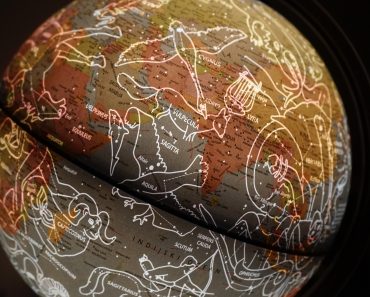Have you ever felt lost or unsure about your life’s direction? Have you ever wondered why certain things keep happening to you? If so, you may want to take a closer look at your birth chart. Your birth chart is a unique map of the sky at the moment you were born, and it holds valuable information about your personality traits, strengths, weaknesses, and potential for growth. This guide is designed specifically for beginners who may find astrology confusing or overwhelming. We’ll help you understand the basics of astrology and show you how to use your birth chart to gain insights into yourself and your life’s purpose.
Why Your Birth Chart is Important
Your birth chart is an exact map of the planets in the sky at the moment of your birth. It provides a unique perspective on your personality, strengths, challenges, and potential. To accurately interpret your birth chart, you need to know your birth time and location. The position of the Sun, Moon, and rising signs in your chart can reveal valuable information about your emotional needs, life’s purpose, and outer persona. Astrology has been studied for years across cultures because of its ability to reveal hidden aspects of ourselves and our place in the world.
Why Birth Time and Location Matter
Your birth date alone is not enough to understand your astrological makeup. The time and location of your birth are equally important in unlocking the secrets of your chart. Without this information, you won’t have a complete picture of how the celestial bodies were aligned at the moment of your birth, which can affect everything from your personality to your career and relationships. The Sun, Moon, and rising signs are essential components of your birth chart that offer valuable insights into your life’s purpose and potential.
The Significance of the Sun, Moon, and Rising Signs in birth chart
The Sun, Moon, and Rising Signs are the three most important elements in your birth chart. Your Sun sign represents your basic personality, while your Moon sign reflects your emotional side. Your Rising sign is linked to your physical appearance and how you present yourself to the world. Understanding these signs can give you a deeper insight into your character and how you interact with others. To determine your birth chart, you need your birth time and location. The position of the Sun, Moon, and planets in the sky at the exact time and location of your birth is what makes up your unique birth chart.
Analyzing Your Birth Chart
Analyzing your birth chart can help you understand your strengths and weaknesses, potential career paths, relationship compatibility, and more. With the help of an astrologer or by learning to read your chart yourself, you can gain a deeper understanding of yourself and the world around you. It’s never too late to unlock the secrets of your birth chart and start living your best life.
The Planets and Their Meanings
When it comes to unlocking the secrets of your birth chart, understanding the planets and their meanings is crucial. Each planet has its own unique characteristics and influences different aspects of your life. For example, Mercury is associated with communication and intellect, while Venus is linked to love and beauty. Understanding these planetary influences can help you better understand yourself and your life path. Additionally, the twelve houses of the zodiac also play a significant role in your birth chart. Each house is associated with different areas of life, such as career, relationships, and spirituality. By understanding the meanings of these planets and houses, you can gain insight into your strengths, weaknesses, and life purpose. Astrology is a powerful tool for self-discovery, and exploring your birth chart can be a transformative experience.
The Twelve Houses and Their Meanings
The twelve houses in astrology are crucial for interpreting your birth chart, as they each represent a specific area of your life. Depending on the placement of these houses in your chart, they can reveal valuable insights into your persona, relationships, and inner workings. For instance, the first house in your chart is linked to your self-image, while the seventh house reveals your approach to partnerships. By studying the meanings behind each of the twelve houses, you gain a powerful tool for understanding yourself and the forces that shape you. This, in turn, can help you work on personal growth and identify areas that require improvement. Regardless of whether you are new to astrology or an experienced practitioner, exploring the twelve houses is sure to be a fascinating and rewarding journey.
Astrology and Self-Discovery
Astrology can be much more than just predicting one’s future or personality traits – it can be a valuable tool for personal growth and self-discovery. Your birth chart is essentially a snapshot of the sky at the exact moment of your birth, and it contains a wealth of information about your potential strengths, weaknesses, and life path. By understanding the meanings of the planets and the twelve houses of astrology, you can start to unlock the secrets of your birth chart and gain valuable insights into your personality, desires, and challenges. Furthermore, astrology can help you identify patterns in your life and offer guidance for making positive changes. With some learning and application of astrology’s principles to your life, you can embark on a journey of self-discovery and personal growth.
Astrology has been a topic of fascination for years, and it still captivates people all around the world. By learning the basics of your birth chart, you can discover a lot about yourself, including your personality traits, strengths, areas for growth, and potential future directions. Some people may dismiss astrology as mere superstition, but others find that it offers a deep and meaningful way to connect with themselves and the universe. Whether you are a beginner just starting out or an experienced astrologer looking to expand your knowledge, this guide can provide a helpful introduction to this complex and rewarding subject. Keep in mind that your birth chart is just one tool for self-discovery a






